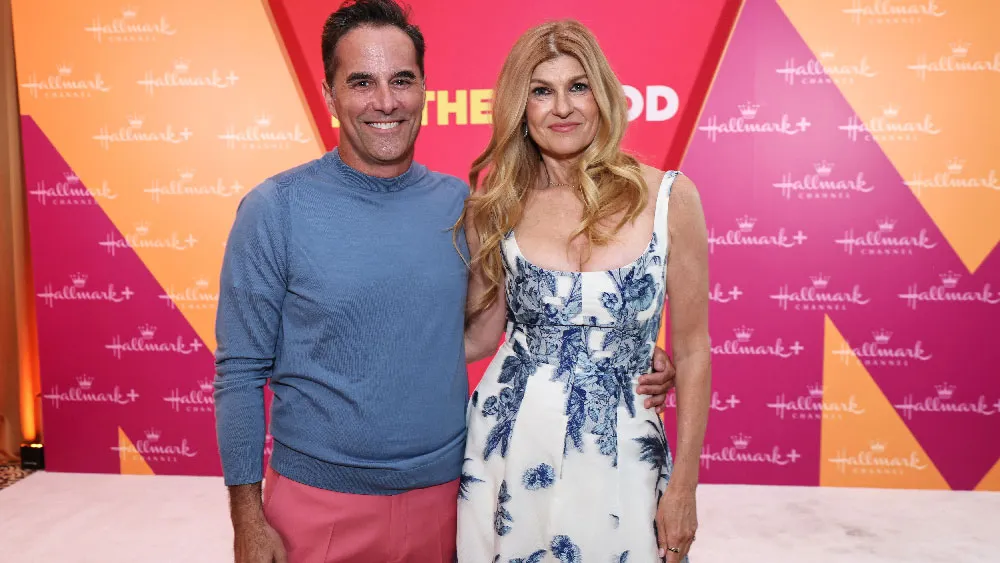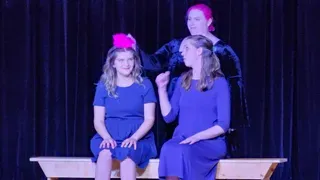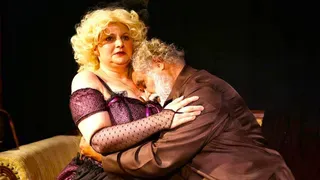November 1, 2013
Water By the Spoonful
Kilian Melloy READ TIME: 4 MIN.
In Quiara Alegr�a Hudes' Pulitzer Prize-winning play "Water by the Spoonful," we witness things we seldom see addressed with any nuance or sympathy. The play is built around a theme of family, and plenty of playwrights have taken on this particular bugbear; but there's another tough strand of story running through this work, and that's addiction to crack cocaine.
A number of health issues (HIV, MRSA, and now a resurgence of syphilis) feed the convenient cliche -- and fiction -- that certain health crises are "gay" problems. Similarly, we're all too often given to believe that addiction to crack is a problem for the poor or for the African American community. But cataloguing any affliction, or addiction, as somehow belonging solely in the province of some "other" demographic group, is dangerous: It might provide some comfort to those outside the demographic in question, but what it does not offer is any sort of protection -- merely the illusion (or delusion) of protection.
"Water by the Spoonful" doesn't belabor the point, but it's there nonetheless, just under the surface. A good deal of the first act takes place in an online chat room for people living with crack addiction, and the people in the chat room represent a cross-section of society. One is a young Japanese-American woman (Theresa Nguyen), an adoptee, who has returned to Hokkaido to find her biological roots; one is an African-American man (Johnny Lee Davenport) with little patience for anyone less invested in overcoming addiction than he sees himself as being; one is a successful businessman (Gabriel Kuttner) who has managed to keep his addiction a secret from his wife.
The moderator (Mariela Lopez-Ponce) is a middle-aged woman whose personal life is fraught with regret, but whose presence online is organized, assured, compassionate, and authoritative: She's not afraid to exhibit the skills of a lunchroom monitor. ("Censored!" she exclaims, deleting foul language that the room's participants hurl at one another.) It's natural for us to want to see these characters quarrel and bond, struggle and triumph; Hudes isn't going to make it easy, for them or for us, though. The quarrels are nasty, the taunts cold-hearted, and the potential for disappointment when the room's participants decide, at various points, to meet in the real world is all too likely.
Then, too, there are the lapses, rationalizations, and back-slidings that are part and parcel of recovery from addiction of any sort. This is not a cheery, fluffy process with a silver lining and golden destination, and Hudes refuses to let it become that here.
Nor does Hudes let anyone off the hook when it comes to the play's second major story strand, that of family. War vet Elliot (Gabriel Rodriguez) has spent all of his time, and most of his energy, in recent months looking after his sick aunt, a woman who has been for all intents and purposes his adoptive mother (in a nice parallel with "Orangutan," the Japanese-American woman from the chat room; these two narratives do tie together, and when they do they illuminate and reinforce each other). Cousin Yazmin (Sasha Castorverde) is Elliot's sounding board and confidant; she provides him sorely-needed solace and support, never flinching from his often bitter outlook. But even Yazmin doesn't know about a war injury that runs much deeper than Elliot's damaged leg; he's haunted by the memory, or the ghost, of an Iraqi man (Zaven Ovian) Elliot killed during a tense moment of misunderstanding.
This last feels, to an extent, like one wrinkle too many. It's not that Ellot isn't an interesting character already; his anger at the decline of his beloved aunt and his rage at the mother who he feels abandoned him give Elliot plenty of dramatic potential, and when his sweeter side emerges -- as it does periodically -- his humor and kindness provide the kind of context and contrast to his anger that makes for dimensionality. (The perpetually helpful Yazmin doesn't get quite this level of creative attention.) In a way, this facet feels dropped in, something to tie the play to broader issues of our time and expand the underlying sentiment beyond the bounds of immediate family and community, making its reach a bit more universal.
But family, affliction, and recovery are pretty universal already; when an incident from Elliot's childhood comes to light (a tragedy that explains the title), it stabs your heart and finally makes sense of Elliot's; his guilty haunting pales by comparison.
Director Scott Edmiston keeps meticulous tabs on each character's palette of colors, and brings their hues out brightly when needed, and allows them to be muted when called for. Richard Wadsworth Chambers' scenic design is deceptively simple --�bands of cords neatly arrayed up the back wall, then spreading out in turmoil across the ceiling. The effect suggests lives that diverge from one another, and individuals who are, in a visually literal sense, unstrung; but there's also an organic intimation here, as though we were being given a glimpse at the complex tangle of roots that undergird any family tree. Suspended in the dangling cords are about a dozen flat-screen TV screens, all the better with which to track the chat room goings-on.
The friend I took to the play commented afterwards that it's about the need for a strong support network, and that's true. It's also about the ways in which, willingly or not, we find our lives enmeshed and entangled with those of others: Sometimes in richly positive ways, but sometimes in the lack, or the loss, of meaningful and nurturing contact. That we are connected in our hopes and sympathies is self-evident; that we are also connected in our mistakes and failures is, if not less apparent, then less celebrated. Hudes brings these things into the light and lets us appreciate them for what they are: Just as essential and human as the happier side of our relationships.
Kilian Melloy serves as EDGE Media Network's Associate Arts Editor and Staff Contributor. His professional memberships include the National Lesbian & Gay Journalists Association, the Boston Online Film Critics Association, The Gay and Lesbian Entertainment Critics Association, and the Boston Theater Critics Association's Elliot Norton Awards Committee.







